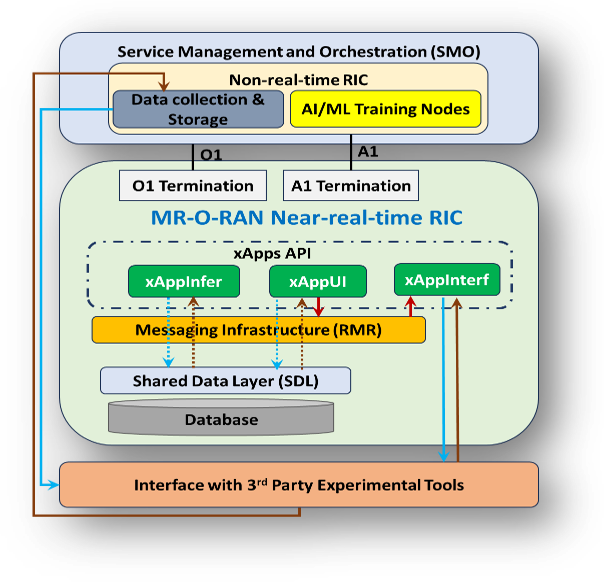Navigating Data Localization: A Catalyst for AI Innovation
Data localization laws are spurring AI innovation labs, transforming regulatory challenges into opportunities for new AI development paradigms.

Navigating Data Localization: A Catalyst for AI Innovation
In an era where data sovereignty and localization laws have become critical geopolitical and commercial considerations, the intricate web of data localization requirements worldwide has inadvertently catalyzed the founding of a novel AI innovation lab. This development, reported recently by Forbes, highlights how regulatory complexity—often seen as a barrier—can spur technological creativity and infrastructure evolution to meet the demands of modern AI development.
The Data Localization Challenge
Data localization laws mandate that organizations store and process data within specific national borders, ostensibly to protect user privacy, national security, and digital sovereignty. Countries including India, China, Russia, and many in the European Union have enacted or are advancing stringent data localization regulations. While these laws reflect legitimate concerns, they create a complex operational labyrinth for multinational corporations, especially those developing or deploying cloud-based AI systems.
The challenge lies in reconciling the global nature of AI with fragmented, localized data infrastructure requirements. AI models typically rely on large, centralized datasets and high-performance computing resources distributed globally. Fragmented data pools hinder the training and refinement of AI, increasing costs, latency, and complexity for technology companies.
The Unexpected Innovation Lab
Amid this complexity, a unique AI innovation lab has emerged as a direct response to the data localization conundrum. Instead of viewing localization as a restrictive obstacle, the lab’s founders embraced it as an opportunity to pioneer new AI development paradigms tailored for localized data environments. This lab serves as a testbed for novel architectures that enable:
- Federated AI training models that allow AI systems to learn from decentralized data without violating localization laws.
- Edge computing solutions that bring AI processing closer to data sources within national boundaries.
- Advanced data anonymization and encryption techniques to enable compliant data sharing and collaboration across borders.
By leveraging these approaches, the lab is creating an ecosystem where AI innovation is not stifled by regulation but rather propelled through adaptive, privacy-respecting technologies.
Strategic Implications for the AI Industry
This innovation lab signals a strategic pivot in the AI landscape, where regulatory frameworks influence technological trajectories more profoundly than ever. Companies are now compelled to rethink their AI infrastructures, shifting from centralized cloud models to hybrid and distributed architectures.
The ripple effects include:
- Rethinking AI data supply chains: Organizations must design AI workflows that respect data sovereignty, potentially increasing reliance on federated learning and synthetic data.
- Emerging global AI hubs: Nations with clear, well-structured data localization policies and support for compliant innovation labs may attract more AI investments.
- New partnerships and ecosystems: Collaboration between governments, academia, and private sector players is essential to develop standards and technologies that reconcile data localization with AI scalability.
Broader Context: AI and National Security
The emergence of such innovation labs also intersects with broader geopolitical concerns. For instance, the United States’ AI strategy emphasizes securing data centers and enforcing export controls to protect sensitive AI technologies, as part of a holistic industrial mobilization to maintain global leadership in AI. Similarly, other countries use data localization to assert control over their digital ecosystems, creating a patchwork of policies that AI developers must navigate.
Industry Response and Future Outlook
Leading AI hardware firms like AMD are rapidly scaling up infrastructure deals to meet the burgeoning computational demands of AI development, reflecting an industry pivot to support distributed and localized AI workloads. Concurrently, AI startups and labs are innovating AI-driven solutions for complex localization challenges, including audio processing and translation technologies.
The data localization labyrinth, while challenging, is driving a new wave of AI innovation focused on privacy, sovereignty, and compliance. This unexpected innovation lab exemplifies how regulatory pressures can catalyze creative problem-solving and new technological frontiers in AI.
Visuals to Illustrate the Story
- Images of the AI Innovation Lab: Photos or renderings of the newly established lab facilities, showcasing advanced computing hardware and collaborative workspaces.
- Data Localization Maps: Infographics illustrating global data localization laws by country, highlighting the regulatory complexity.
- Federated Learning Diagrams: Visual explanations of federated AI training models that enable decentralized data use.
- Key People: Portraits of executives or researchers leading the innovation lab.
These visuals would provide readers with a tangible sense of how data localization policies influence AI infrastructure and innovation.



